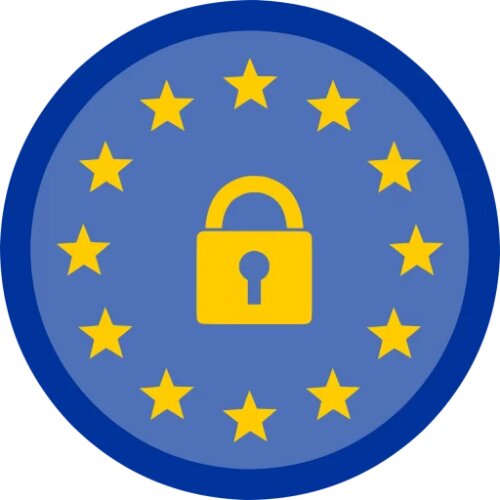Best Criminal Litigation Lawyers in Vilnius
Share your needs with us, get contacted by law firms.
Free. Takes 2 min.
List of the best lawyers in Vilnius, Republic of Lithuania
About Criminal Litigation Law in Vilnius, Republic of Lithuania
Criminal Litigation in Vilnius, like in the rest of Lithuania, is governed by both the Criminal Code and the Code of Criminal Procedure. These lay the framework for how criminal offenses are prosecuted and defended in the Lithuanian legal system. Criminal litigation encompasses the prosecution of accused individuals, the defense of these individuals, and the overall enforcement of criminal laws. Vilnius, as the nation's capital, hosts the major courts where significant criminal cases are tried, and the concentration of legal expertise in criminal law is notably higher compared to other regions.
Why You May Need a Lawyer
Having a lawyer in criminal litigation is crucial because the stakes are high; a criminal conviction can lead to severe penalties including imprisonment, fines, or both. Common situations where individuals may require legal help include being accused of a crime, being investigated by the police, being summoned to court, or if they wish to appeal a conviction. A skilled lawyer provides critical guidance, helps navigate the complex legal system, ensures a fair trial, and works to secure the best possible outcomes under the law.
Local Laws Overview
The Lithuanian criminal law system is codified, meaning that crimes and punishments are clearly defined in legislative documents. Some key aspects include: - Presumption of innocence: An individual is considered innocent until proven guilty. - Right to defense: Every accused person has the right to defend themselves in court, either with or without an attorney. - Proportionality of punishment: Penalties must be proportionate to the crime committed. - Statute of limitations: Criminal charges must be filed within a certain timeframe, depending on the offense. Understanding these laws is crucial for anyone involved in criminal litigation to ensure proper application and adherence to legal rights.
Frequently Asked Questions
What should I do if I am accused of a crime?
If you're accused of a crime, it is important to consult with a criminal defense lawyer immediately. They can advise you on your rights and help build a defense strategy.
Can I represent myself in criminal court?
While you are legally allowed to represent yourself, it is not advisable due to the complexity of criminal law and the potential for severe legal consequences. An attorney can offer professional guidance and representation.
What are my rights if I am arrested?
You have the right to remain silent, to be informed of the charges against you, and to have access to a lawyer. It's essential to exercise these rights to avoid self-incrimination and to ensure a fair legal process.
How does bail work in Lithuania?
Bail is a mechanism that allows the accused to be released from custody, usually in exchange for money or security, as a guarantee that they will appear in court. The court decides on bail based on the severity of the offense, the accused's criminal history, and the risk of fleeing.
What are common defenses used in criminal cases?
Common defenses include alibi, self-defense, consent, duress, or mental incapacity. The defense strategy will depend on the specific circumstances of the case.
What is the maximum penalty for serious offenses?
The maximum penalty for the most serious offenses, such as murder, can be life imprisonment. Other severe crimes could entail long terms of imprisonment and substantial fines.
How long does a criminal trial usually last?
The duration of a criminal trial can vary widely depending on the case's complexity, the number of witnesses, and the court's schedule. It can range from a few weeks to several months.
What happens if I am found guilty?
If you are found guilty, the court will impose a sentence which could involve imprisonment, fines, or probation. You may have the right to appeal the decision.
Can I appeal a court's decision?
Yes, you can appeal a court decision if you believe there has been a legal error in your trial. An appellate court will review the case and determine if a new trial is warranted or if the verdict stands.
Are there alternative sentences to imprisonment?
Yes, depending on the offense, alternative sentences such as probation, community service, or house arrest may be applied. These alternatives are usually considered if they can serve justice and the rehabilitation of the offender effectively.
Additional Resources
Several resources and organizations can provide more information and assistance in criminal litigation in Vilnius: - Lithuanian Courts: The official website provides information about courts and procedures. - Lithuanian Bar Association: Offers a directory to find qualified legal professionals. - Lithuanian Prosecutor General's Office: For details on the prosecution process and public prosecutor roles. Accessing these resources can help gain deeper insights into the legal landscape and provide additional support when navigating the criminal litigation process.
Next Steps
If you find yourself needing legal assistance in criminal litigation, the first step is to contact a licensed criminal defense attorney in Vilnius. Gather any relevant documents or evidence related to your case and prepare to discuss your situation in detail with your attorney. They will guide you on the procedures, help protect your rights, and work toward a favorable outcome. Engaging with professional legal assistance is critical for effectively managing and confronting criminal charges.
Lawzana helps you find the best lawyers and law firms in Vilnius through a curated and pre-screened list of qualified legal professionals. Our platform offers rankings and detailed profiles of attorneys and law firms, allowing you to compare based on practice areas, including Criminal Litigation, experience, and client feedback.
Each profile includes a description of the firm's areas of practice, client reviews, team members and partners, year of establishment, spoken languages, office locations, contact information, social media presence, and any published articles or resources. Most firms on our platform speak English and are experienced in both local and international legal matters.
Get a quote from top-rated law firms in Vilnius, Republic of Lithuania — quickly, securely, and without unnecessary hassle.
Disclaimer:
The information provided on this page is for general informational purposes only and does not constitute legal advice. While we strive to ensure the accuracy and relevance of the content, legal information may change over time, and interpretations of the law can vary. You should always consult with a qualified legal professional for advice specific to your situation.
We disclaim all liability for actions taken or not taken based on the content of this page. If you believe any information is incorrect or outdated, please contact us, and we will review and update it where appropriate.















